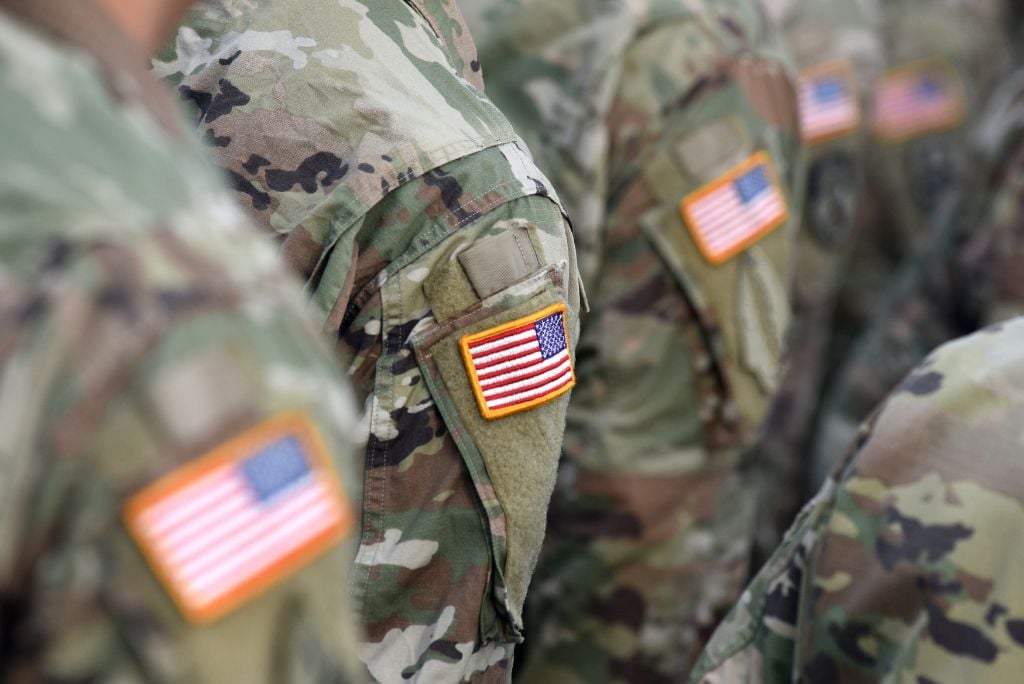We support our Publishers and Content Creators. You can view this story on their website by CLICKING HERE.

The Peruvian Congress has approved the entry of U.S. military personnel for the upcoming Asia-Pacific Economic Cooperation (APEC) Forum summit, set to take place from November 4 to 24, sparking an intense debate across the country.
The initiative, promoted by President Dina Boluarte on April 20, aims to reinforce the summit’s security and enhance international cooperation. However, the measure has divided public opinion and Congress, with supporters citing the economic and security benefits of U.S. cooperation, while critics see it as a potential threat to national sovereignty.
The resolution passed with 63 votes in favor, 23 against, and seven abstentions. President Boluarte and her cabinet defended the measure, arguing that an event of this scale requires substantial logistical and administrative support, achievable through U.S. cooperation.
Supporters in Congress argue that the presence of U.S. troops is not an invasion but a strategic partnership for APEC’s successful organization. Opposition lawmakers, mainly from left-wing parties like the Socialist Party and Juntos por el Perú–Voces del Pueblo, have strongly opposed the decision, claiming it is an “affront to sovereignty.”
Lawmakers like Adriana Tudela called it “absurd” to suggest that the measure threatens national sovereignty, emphasizing that the military presence is temporary and strictly for security and logistical purposes.
“The benefits of this resolution are focused on enhancing security across various APEC activities, as well as the economic leaders’ summit and related events to be held in the country,” Tudela added.
The cooperation and training activities will span various regions in Peru, including Lima, Callao, Loreto, San Martín, Huánuco, Ucayali, Pasco, Junín, Huancavelica, Cusco, Ayacucho, Iquitos, Pucusana, and Apurímac.
The contingent of U.S. military personnel entering Peru will bring two planes, four helicopters, seven fuel supply vehicles, hundreds of rounds of ammunition, and various types of weaponry. More than 600 soldiers from different branches, including the Army, Air Force, and Marine Corps, will be stationed in Lima, Pisco, and Chiclayo.
A key argument in favor of the resolution is the growing insecurity in Latin America and the impact of criminal activities in neighboring countries. In this context, the presence of U.S. military forces is seen as necessary not only to protect attending dignitaries but also to strengthen efforts against drug trafficking and other transnational threats affecting Peru.
For Boluarte and her allies, APEC is an opportunity to project an image of stability and commitment to foreign investment, with participant security essential to achieving this goal.
The approval of this resolution also reflects the strategic ties between Peru and the United States—a relationship that has grown in importance as other regional countries, such as Bolivia and Venezuela, have distanced themselves from U.S. influence.
The Congress of the Republic approved by majority vote the request from Dina Boluarte’s government to allow U.S. military personnel, with war weapons, to enter Peruvian territory to support security efforts during the Asia-Pacific Economic Cooperation (APEC 2024) forum.
The U.S. considers Peru a critical regional ally in countering the influence of actors like China and Russia, who have intensified their presence in Latin America through investments and military agreements. The arrival of U.S. troops may also signal U.S. commitment to Peru in the context of this broader geopolitical competition.
María Herrera Mellado es una abogada de EE.UU. y licenciada en España. Doctora en Ciencias Jurídicas y Analista política. La Dra. Herrera es conocida por su amplia experiencia en análisis y consultas en el diseño de políticas públicas, propuestas de ley y gestión en relaciones internacionales.
Su reconocimiento proviene de sus contribuciones al análisis y representación legal de diversas organizaciones, empresas e individuos que han visto abusados sus derechos humanos, su privacidad o en la inclusión de políticas efectivas fundamentalmente en el ámbito de la transparencia y la rendición de cuentas, así como la lucha contra la corrupción.
Su formación académica y experiencias profesionales la convierten en una voz respetada en el debate público y en el análisis de temas de actualidad sobre todo en los desafíos políticos y legales contemporáneos.
María Herrera Mellado is a U.S.-based attorney also licensed in Spain. She holds a PhD in Legal Sciences and is known as a media legal and policy analyst.
Dr. Herrera is recognized for her extensive experience in analyzing and consulting on public policy design, legislative proposals, and international relations management.
Her recognition stems from her contributions to the analysis and legal representation of various organizations, companies, and individuals whose human rights or privacy have been violated, or who have benefited from the inclusion of effective policies, primarily in the areas of transparency, accountability, and the fight against corruption.
Her academic background and professional experience make her a respected voice in public debate and in the analysis of current issues, particularly in contemporary political and legal challenges.

 Conservative
Conservative  Search
Search Trending
Trending Current News
Current News 


